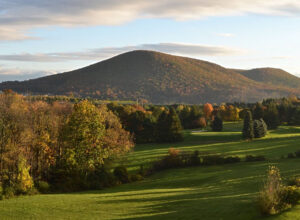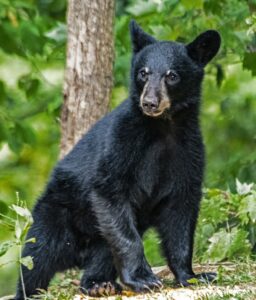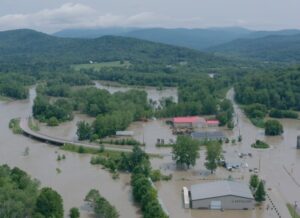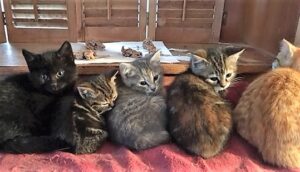 I grew up in the semi-agricultural zone between a major university town and a historic village on its outskirts. I lived in a neighborhood–not a development–though only one side of our property was bordered by another house. The rest was woods, fields, or park.
I grew up in the semi-agricultural zone between a major university town and a historic village on its outskirts. I lived in a neighborhood–not a development–though only one side of our property was bordered by another house. The rest was woods, fields, or park.
I knew my neighbors. Mr. Smollett always drove too fast, his wife was an art teacher. The Shulers were a nice family, but they didn’t go to our church. German immigrants lived a few houses up from us, the dad working as a research engineer on campus. And these people knew me. I walked their dogs, I babysat their kids, I rambled across their yards without a second thought for whether I was “allowed” on their land.
Since the pandemic, the place where I live now has subtly morphed to be a little more like my first neighborhood. As I was putting out the morning ration of cat food the other day, my neighbor hailed me over to let me know there’s a young bear in the area.
 Another neighbor paused while walking her dogs to catch me up on some memories her 98-year-old dad has of the house where I live. The girls from half a mile down the road have been stopping by on their bikes to gush over a litter of kittens now calling my porch home. (Yes, those kittens WILL be fixed.)
Another neighbor paused while walking her dogs to catch me up on some memories her 98-year-old dad has of the house where I live. The girls from half a mile down the road have been stopping by on their bikes to gush over a litter of kittens now calling my porch home. (Yes, those kittens WILL be fixed.)
Part of me is a little twitchy to have children just showing up in my yard (“What if they get stung by a bee when I’m not here?!”), but another part of me, about eight years old, thinks that reaction is dumb. Kids should be rambling around on personal reconnaissance, exploring the world, and learning the environment to the extent they can safely do so.
I came across a good reason to push back against my hermit tendencies in this article by climate activist Bill McKibben, who is frequently asked, “Where should I move to be climate safe?” (If you want yet another sobering though ultimately hopeful read on  humanity’s future, see his book, Falter.) Apparently nearly a third of Americans are considering moving, or have moved in the past two years, at least in part due to climate considerations.
humanity’s future, see his book, Falter.) Apparently nearly a third of Americans are considering moving, or have moved in the past two years, at least in part due to climate considerations.
McKibben’s prescription skips over the obvious (New England looks pretty good, right?) to state flatly that there is no safe place. New England has seen historic floods, historic air quality problems, historic heat waves… though there is one criterion that McKibben says it makes sense to maximize, that being social trust. Vermont, where he lives, is a state that enjoys very high levels of social trust. When the recent floods hit, people pulled together, hard.
 Neighbors in Vermont, according to McKibben, neighbor. Public institutions fulfill their mandates reliably. The benefit of the doubt is still given, and kindness is always an available default. People show up for one another. McKibben’s point is that if we let the mess we’re in continue to divide us, we’re doomed, but there’s a way out of the trap that begins with backyard chats, shared appreciation for kittens, and gratuitous bear alerts.
Neighbors in Vermont, according to McKibben, neighbor. Public institutions fulfill their mandates reliably. The benefit of the doubt is still given, and kindness is always an available default. People show up for one another. McKibben’s point is that if we let the mess we’re in continue to divide us, we’re doomed, but there’s a way out of the trap that begins with backyard chats, shared appreciation for kittens, and gratuitous bear alerts.
If we can’t exactly love our neighbors, we can at least know them, and lend a hand when trouble strikes. Which leads me to ask, do you connect with your neighbors? How would you connect with them, if that was a priority?







I am getting a lot of help this week from neighbors. My elderly parent just had a stoke so I am at their home taking care of them. Thank goodness for their neighbors and friends who are assisting me, they are such a blessing. I need to pay this kindness forward, too!!
When my dad was in his final decline, we so appreciated the friends and neighbors who continued to stop by, to look in on him–and on us. The church lady who popped in on Sunday, the old breakfast buddy, the few, the genuine, the caring. I’m sure Dad enjoyed having the company (in short increments), and it meant a lot to his children that others were not abandoning him when he needed most to be included in their lives, however gently.
I hope your parent has a good prognosis, Make, and that YOU get a lot of support in this unlooked for compression phase.
My husband and I have lived in the same neighborhood for 32 years. We have 3 neighbors who’ve been here longer than we have, several who fall into the 10-15 year range, and one new neighbor. We no longer have kids playing together in common, but we say hello, chat, and generally help each other with snow shoveling and gathering mail. However, we aren’t the come over for coffee and have a chat friendly. That makes me a little bit sad. My son and his wife, on the other hand, have moved into a neighborhood where many families have young children. They’ve actively reached out (a genetic trait I’m sadly missing) and are becoming good friends with their neighbors. My daughter and her husband also enjoy that same connection in their neighborhood. They are an outgoing, gregarious couple who host regular evening bonfires. I think that’s the key to connecting: find something you enjoy and invite your neighbors to be a part of the activity.
One neighbor hauls his 8 foot ladder over to silence & replace my blaring smoke alarms. He & his son started a lawn company after he got laid off right before retirement & I’ve hired them to deal with my jungle. He & a former neighbor who worked on base used to go roust illicit parties in the woods behind before the next phase of our development got built. Aren’t many men maxi enough to shut down revelries without law enforcement as backup. Not sure they’d risk it these days.
Another former neighbor got to be such good friends that her dog would throw a tantrum if she tried to walk past my house without stopping. When they moved, i backed my car out & let them store a bunch of their stuff in my garage until their new house was finished.
The new transplant from Tennessee already has cuttings of my Wandering Jew & a pot of my aloe rooting at her place. We share gardening tips & I’ve asked her to look for some shell ginger for me as she explores the nurseries.
The rest are mostly new people replacing the familiar faces. I haven’t met the new family yet who bought the house next door after the old timers couldn’t keep up with it anymore. But our stretch of road is mostly looking out for each other to the point we know who all is on the same internet provider & text each other when the internet goes out to see if it’s just our house, the street, or wider.
Good neighbors are invaluable, aren’t they? And the best ones turn into life-long friends. The cats are so cute … I keep waiting for a stray cat to show up and move in, but ALAS this hasn’t happened.
I am living in temporary housing due to a house fire, and have met just one of my new neighbors. One of the people on our culdesac just had his truck repossessed today, which I consider sad. The truck looked fairly new, and car prices are sky high right now. Not the time to buy a truck. We had a neighbor in our real neighborhood (who was renting, we believe), who avoided having his car repossessed by parking another car in front of his driveway. Simple but effective.
I have people I work with, a few long time friends, relatives who live in a nearby town, and a few people I know in my real neighborhood.
We have a neighborhood group which I may join when I retire in December. They seem to be very concerned about grass height and edging. On the good side, they are very good about notifying the other neighbors about dogs out of their fences or an injured or lost animal. Some of them also certified to take care of wild animals. Lost dogs are usually spotted and retrieved by their people quickly here.
I was in Al Gore’s class at Harvard and have been hearing about Climate change for at least 30 years. It is happening even faster than the predictions. When I was in Graduate school in the 1970’s, California had terrible smogg from car pollution. I wrote an article about how trees can absorb pollution and purify the air. Bernard Housemann used this technique in 19th century France to clean the air of coal smoke pollution. We can use this technique today. Planting trees along highways will work to absorb pollution and cool the air.
The head of the civil engineering department was planting trees in Tehran to increase the oxygen and moderate the temperature. When the Shah was ousted the project stopped and and now Tehran has become a desert. In the Egyptian first Empire the grass lands west of the Nile river were over grazed and became the Sahara desert. Millions of people died in that ecological disaster. As we know the Sahara has only expanded over the millennia. This same ecological disaster is happening today in the African grasslands in the southern parts of the continent.
A serious tree planting campaign today would help moderate climate change. One tree has the cooling power of 20 room sized air conditioners. Street trees would moderate the climate in our cities and make life pleasanter. Encouraging youth groups to work on this would give today’s young people a feeling that there is some hope to moderate the effects of climate change.
We need to work together as a society to moderate effects of pollution. We need to invest in trains for public transportation. We need to rethink our farming practices and water conservation. Long term irrigation has caused salt build up in the soil which is irreversible and will affect farmlands for millennia. Our time will be judged by future generations as to how we deal with this climate crisis.
“They helped every one his neighbour; and every one said to his brother, Be of good courage. So the carpenter encouraged the goldsmith, and he that smootheth with the hammer him that smote the anvil, saying, It is ready for the sodering: and he fastened it with nails, that it should not be moved.”
Isaiah 41:6,7
I’ve sometimes wondered what the carpenter knew about goldsmithing and vice versa.
My community is becoming a divisive place of ugly fences.
My Mom is a genius at being friendly and being an extravert = so she had many neighbor friends who pulled together to help her out before we had to move her to an assisted living situation. They were also fabulous at helping my Dad when he was alive.
I, on the other hand, am a massive introvert and talking to people is NOT my strong suit.
So, while I do know the neighbors across the street, I know no one else in my neighborhood. :/
But, I have been known to make sure all loose dogs get back to their appropriate home!! Happens a lot, especially to the people right next door. The dogs can get under the fence or through the gate so, I see ’em and I gather ’em and take ’em home.
I appreciate the thoughtful post. A great recent read is “Fire Weather” by John Vaillant.
Neighboring is fulfilling! We bring cookies to people who move in to introduce ourselves. I strike up conversations at sports field sidelines and ask friendly questions (“tell me about yourselves”) and I’ve joined a local chorus. The first time entering a room is always hard but I try to remember that part goes away soon.
I find a big disconnect between our community’s understanding of climate change and our actions. We bemoan the heat and extremes but squeal about a new Ford F-150 or Escalade. We grumble about the school’s car pick up line but choose to live in non-walkable neighborhoods. We track our steps but use the Dunkin drive through. I understand this is human nature and socialization but often struggle with the dissonance.
I find great joy and hope I things like our “Buy Nothing” Facebook group; local gardening movement; men’s basketball league; kids sports teams; great local online paper; proliferation of rooftop solar panels and electric vehicles. And the passage of the IRA creating investment in retrofits and infrastructure. Humor is important!
Your musing struck a chord with me. I live in Delaware in a small community. It is comforting to walk the neighborhood and chat with people I know along the way. It seems as though we all look out for each other. It gives me hope for humanity that people are still kinds to each other and look out for their neighbors.
By the way,
I’m a huge fan of yours. I just love your character development and the snappy dialogue. It never hurts to have a strong female character as well.
Connie